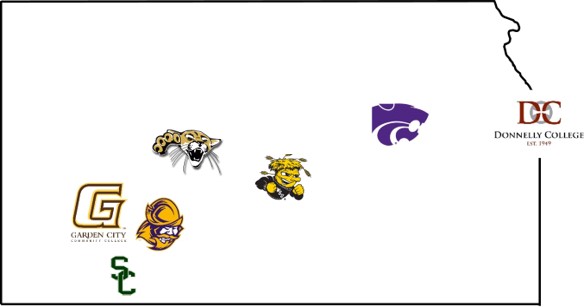KS-LSAMP funded for an additional five years
Congratulations to the KS-LSAMP team for their efforts in helping to get the Kansas alliance funded for an additional five-years and $3 million. Welcome to our new partners, Barton Community College and Wichita State University. You can read more here: https://www.k-state.edu/media/newsreleases/2018-09/kslsamp92418.html
Watch a short video about the LSAMP program.
KS-LSAMP promotes recruitment and retention programs throughout Kansas in support of increasing the success of students in STEM fields. KS-LSAMP includes the following institutions:

-
Kansas State University (Manhattan, KS),
-
Barton Community College (Great Bend, KS)
-
Dodge City Community College (Dodge City, KS),
-
Donnelly College (Kansas City, KS),
-
Garden City Community College (Garden City, KS) and
-
Seward County Community College/Area Technical School (Liberal, KS)
-
Wichita State University (Wichita, KS)
These institutions will work together to implement specialized activities for students at critical junctures in their careers such as high school to college and the transition from two-year to four-year institutions.
Take a look at the KS-LSAMP blog for more update information about KS-LSAMP activities.
![]() This material is based upon work supported by the National Science Foundation under Grant Numbers 1817537 (2018) and 1305059 (2013). Any opinions, findings, conclusions or recommendations expressed in this material are those of the KS-LSAMP program and do not necessarily reflect the views of the National Science Foundation.
This material is based upon work supported by the National Science Foundation under Grant Numbers 1817537 (2018) and 1305059 (2013). Any opinions, findings, conclusions or recommendations expressed in this material are those of the KS-LSAMP program and do not necessarily reflect the views of the National Science Foundation.